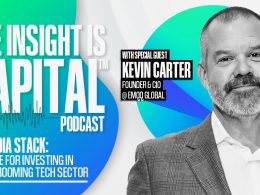One reason for highlighting the period of bubble valuations in green is to make a very emphatic point. If you exclude the bubble valuations of 1995-2007 (as depicted in the chart below), the current valuation of the S&P 500 is near the highest level ever observed in history. To expect valuations to expand from here is to rely on the sustained resumption of bubble valuations that have ultimately been devastating to investors.

"Well, then the Fed would lose money there"
Last week, Ben Bernanke appeared before Congress for his regular Humphrey-Hawkins testimony. For most of that testimony, it fascinated me that every time the Bernanke said that the Fed has taken no losses on its operations, there was absolutely no remark that the reason the Fed has not lost money is that the Treasury, directly (Fannie, Freddie) or indirectly (AIG) has made the liabilities held by the Fed whole.
From that perspective, the critical part of Bernanke's testimony was the following exchange with New Jersey Congressman Scott Garrett of the House Financial Services Committee. Importantly, Bernanke concedes that by placing two-thirds of its balance sheet into the liabilities of insolvent agencies (Fannie Mae and Freddie Mac), now under conservatorship, the Fed is essentially relying on Congress to make these institutions whole at taxpayer expense. The Fed has put the public on the hook to bail out the GSEs.
SCOTT GARRETT: You bought over a trillion dollars of GSE debt, and to that point, under normal circumstances, on the Fed's balance sheet what you have on there are Treasuries, or if you had anything else on there, I assume you would have a repurchase agreement for those securities on your balance sheet. Now of course around two-thirds of that are in GSE debt.
BEN BERNANKE: Correct.
GARRETT: So right now, those are guaranteed - whether they're sovereign debt or not, we don't know - but they're guaranteed by the U.S. government. But they're only guaranteed to when? 2012, right? After that, Congress may in its wisdom make another decision, and at that point in time, you may be holding on your balance sheet - two thirds of your balance sheet - something that is not guaranteed by the Federal government. First of all, you don't have a ... do you have a repurchase agreement on those with anyone? No.














When you say "if you require the money for retirement a short number of years get out".
I am needing mine in less than 5, when you say get out are you talking GIC's or related products or Bond and income type funds.
Thanks
Specifically, John Hussman writes "Investors who will need to fund specific expenses within a short number of years – retirement needs, tuition, health care, home purchases etc – should not be relying on a continued market advance."
Interpretation is that one should reduce/cut risk on funds that are invested in risky assets such as equities required within 5 years, or, conversely, increase holdings in vehicles like GICs, short term bonds/bond funds, money market funds, that sort of thing on funds you'll require within 5 years.